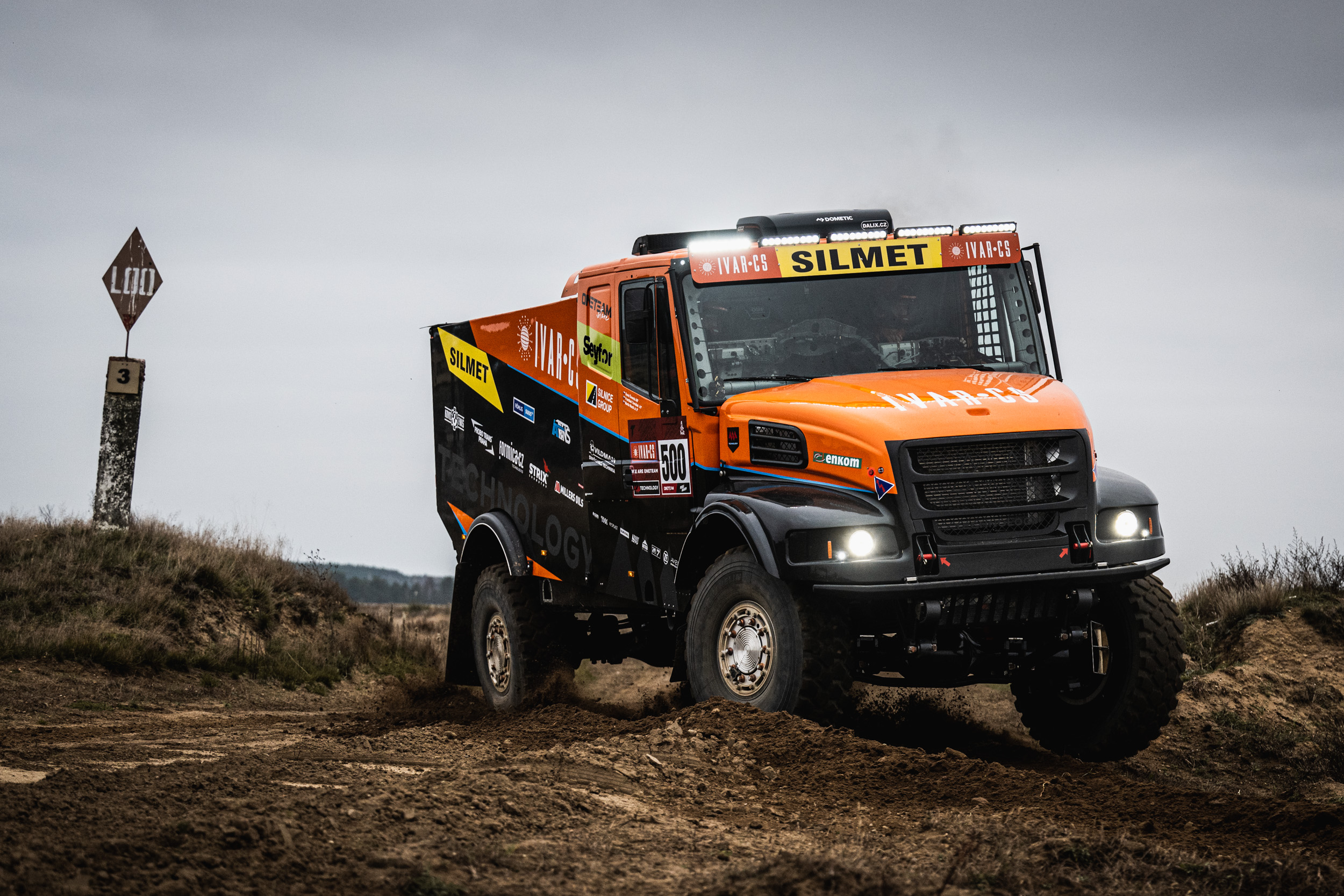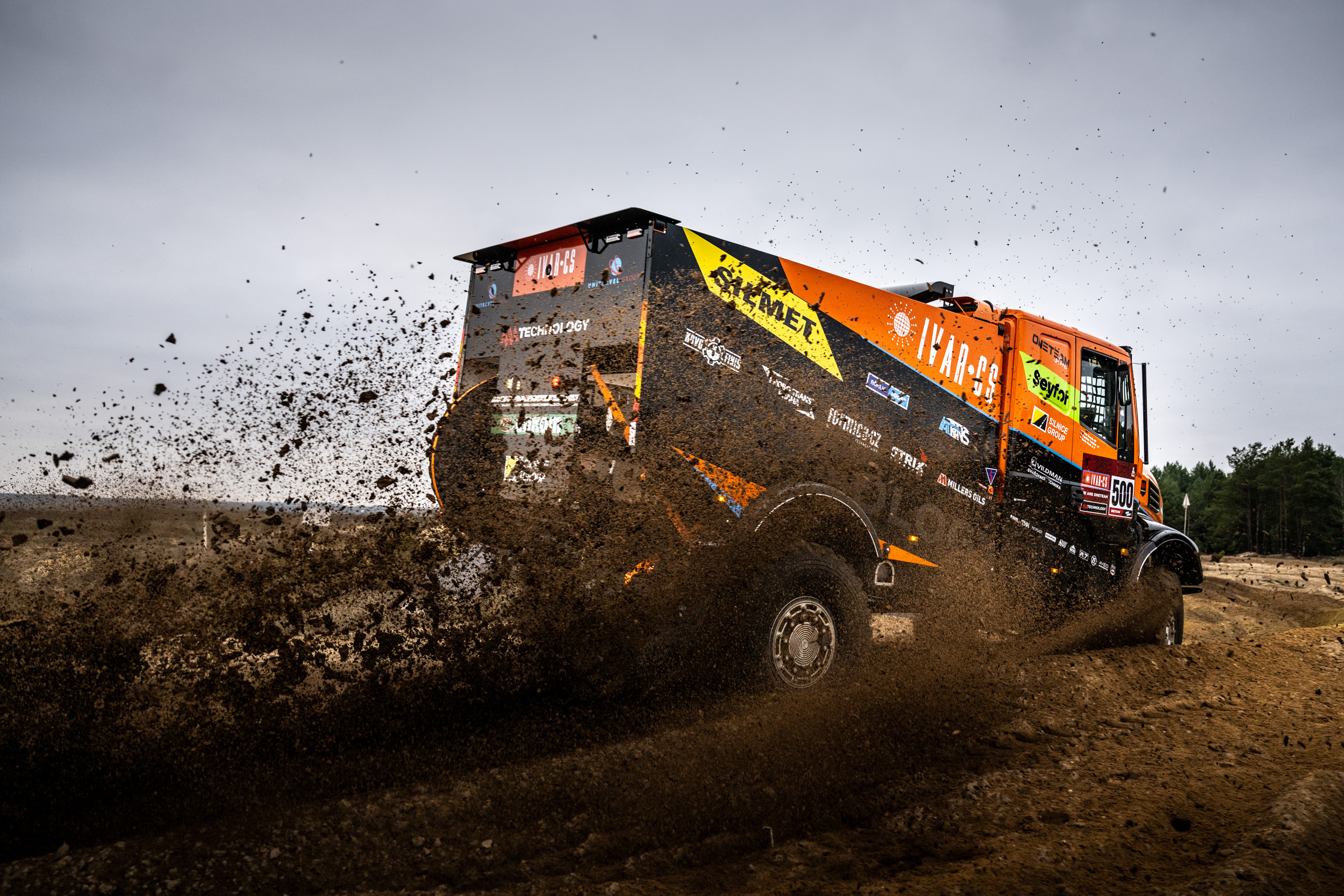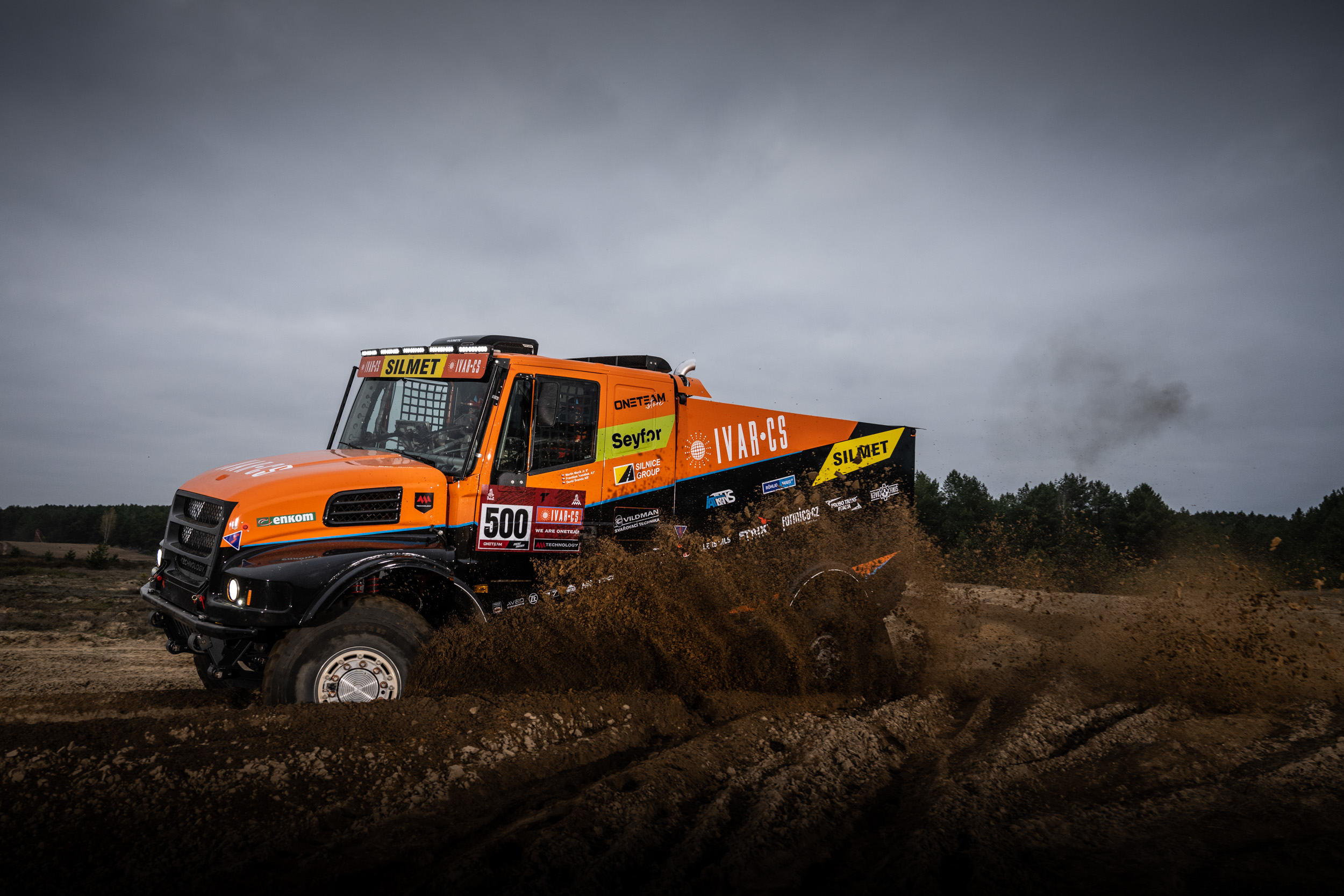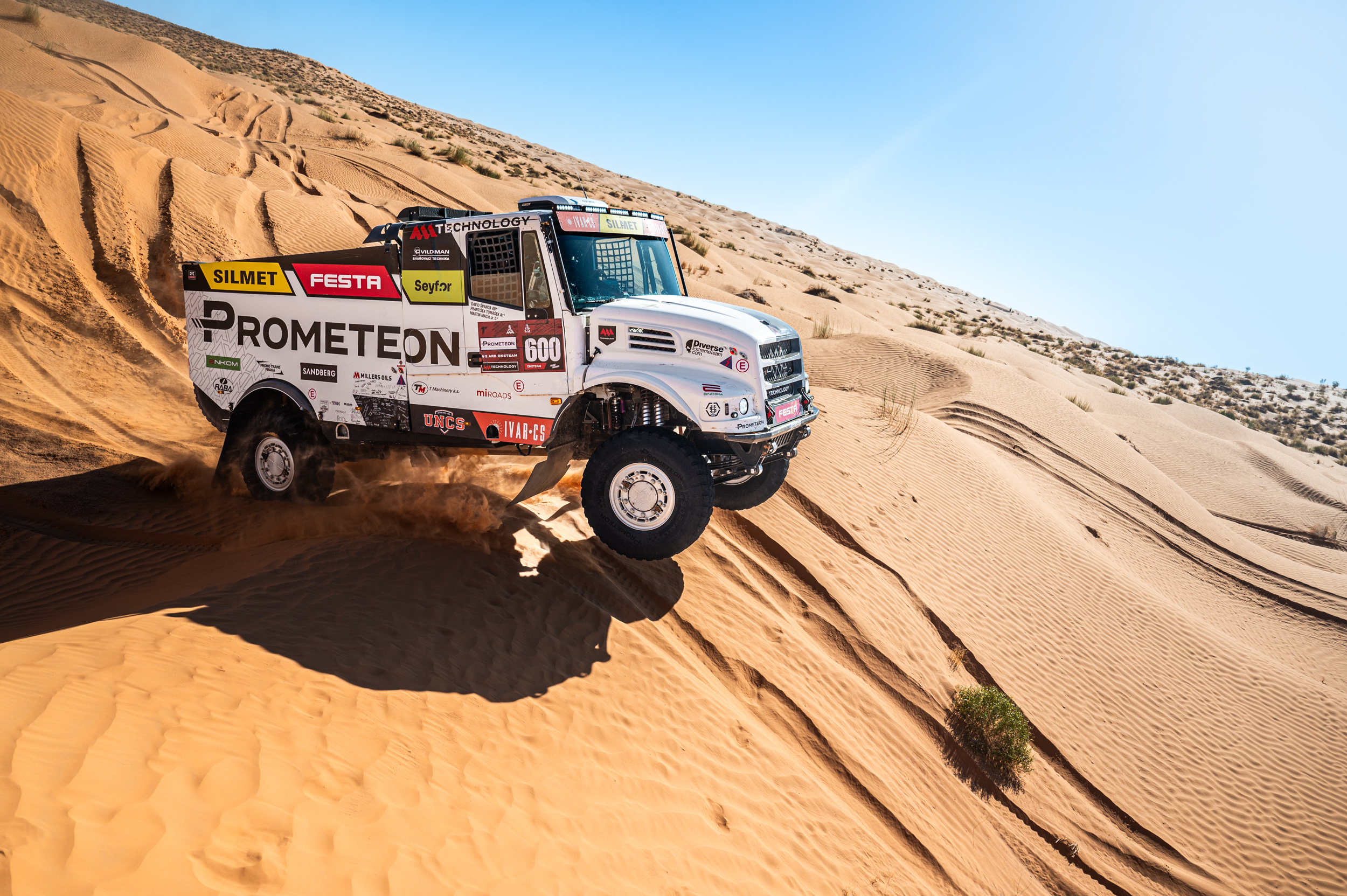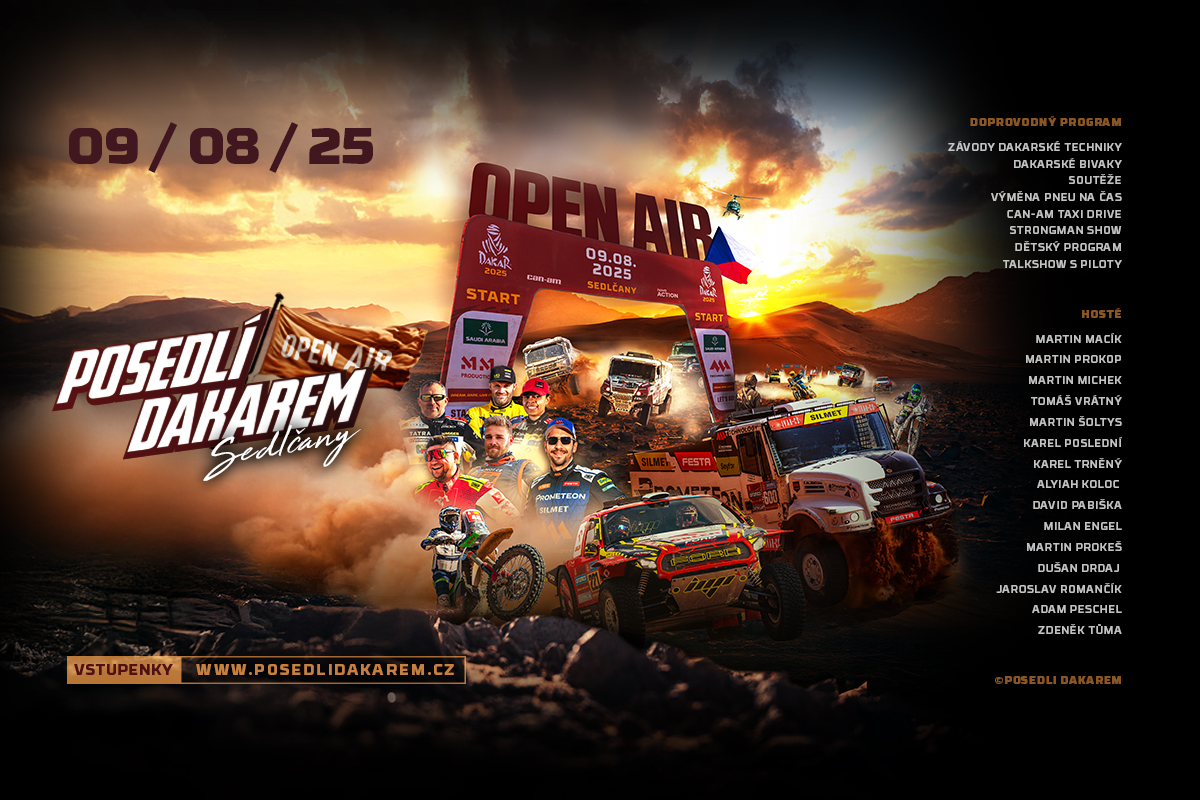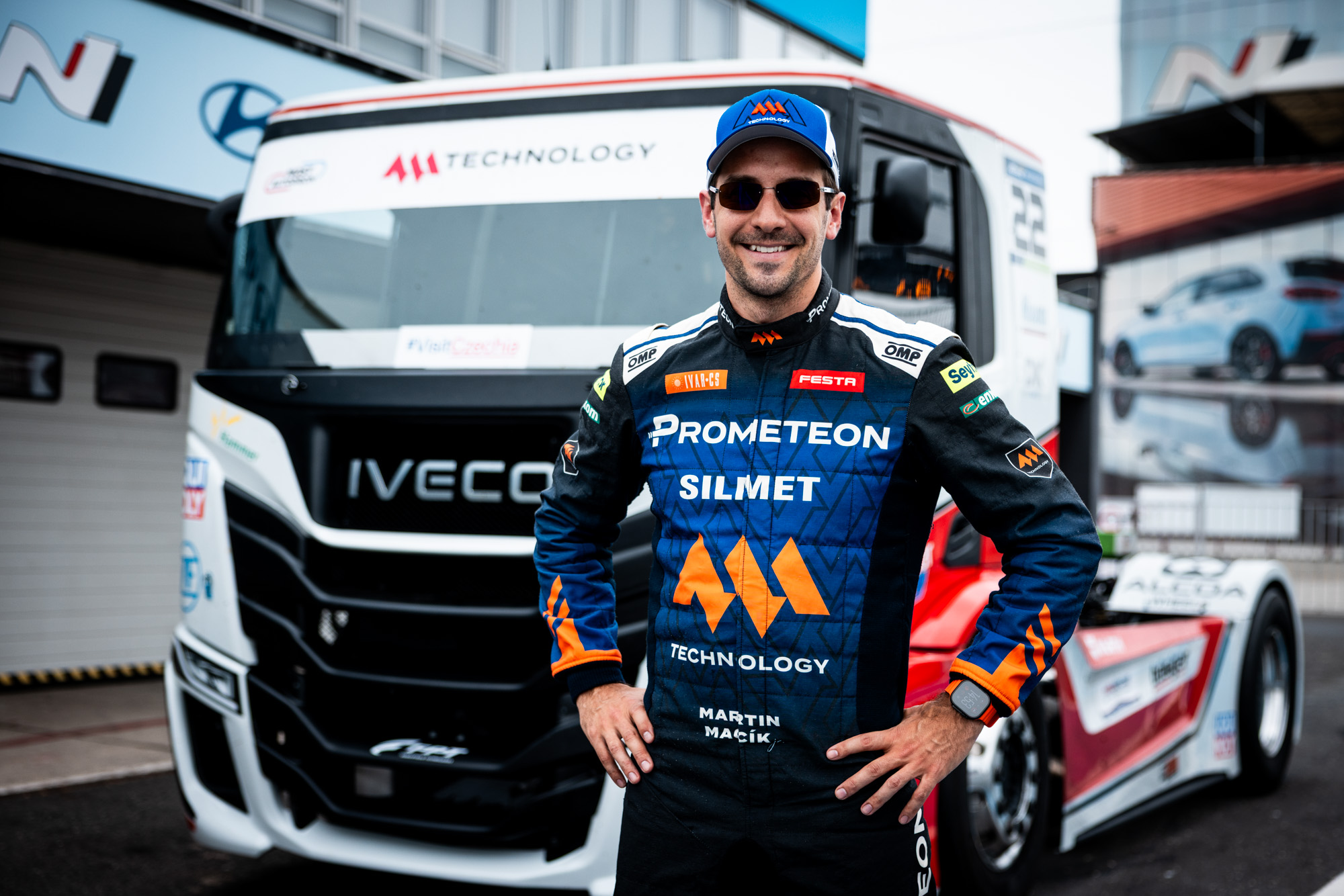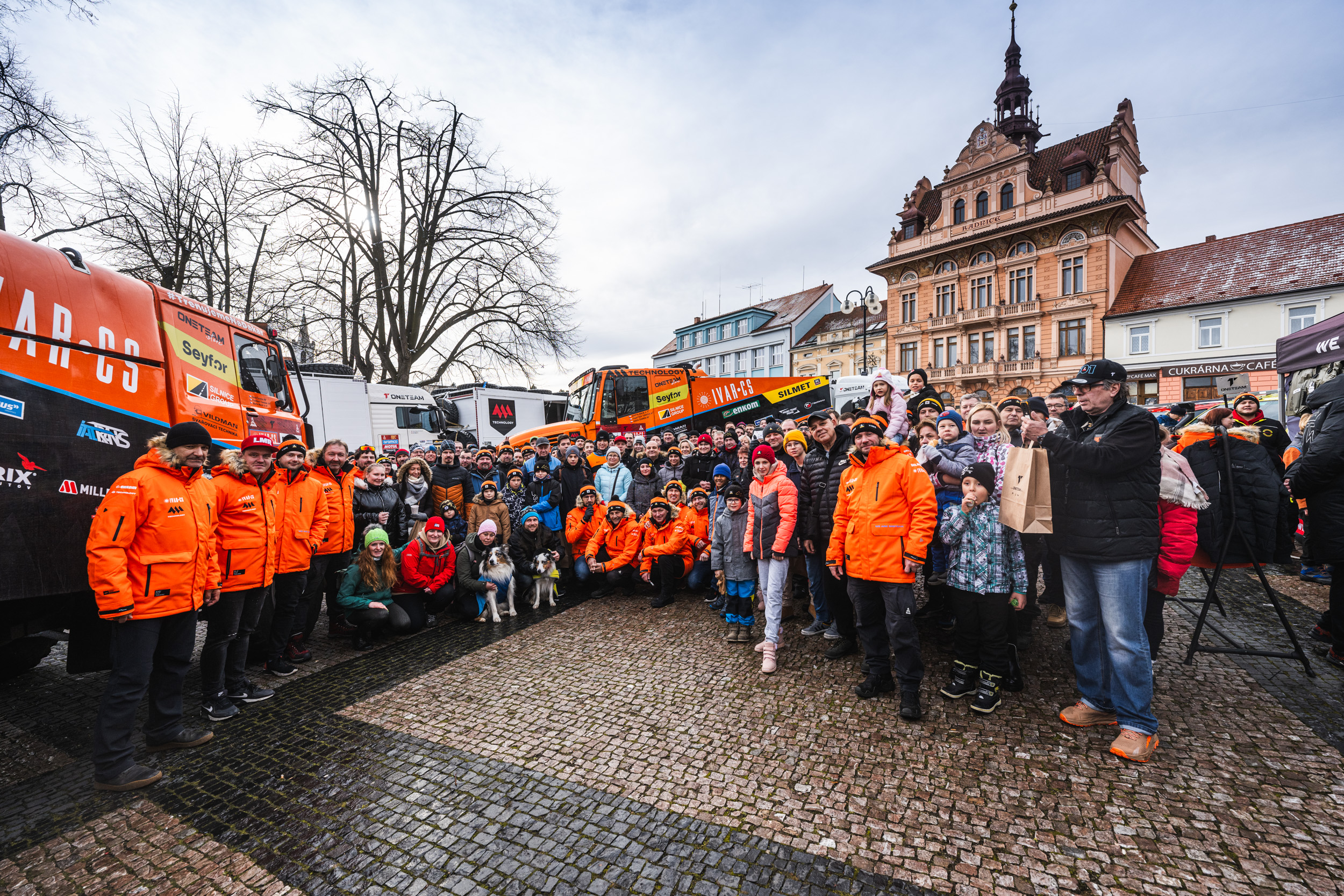There are 4 weeks left until the start of the 45th year of the Dakar Rally. The organizers revealed the route and thus pumped the first dakarese adrenaline into the veins of all competitors and their fans. The crew of the MM Technology team consisting of pilot Martin Macik, navigator Frantisek Tomasek and mechanic David Svanda is ready. Their truck named Cenda will set out on a course of over 8,500 km (of which approximately 4,700 will be racing km) as one of 455 competing vehicles. All of them will try to overcome the pitfalls of the course including the terrifying dunes of the Empty Quarter in which the marathon stage will also take place. But only the toughest crews will reach the destination after 15 days. Where will the next Dakar be decided? How has the new information about the track affected the MM Technology team’s strategy? Which section will be the most mentally demanding? And why will the skills of the mechanics play a significant role?
Cool head and strong pace from the start
According to the latest reports from the organizers most of the eight opening stages of the upcoming Dakar will have over 400 racing kilometers. “The specials will lead through territories we already know. Almost all the terrains you can find in Saudi Arabia await us – they will often alternate within one stage. Most of the route will be very rough. We are preparing for scree, rocks, plains, between which suddenly extremely soft, slow sands will appear. Then we will head for a trial stage and then we can push in a fast-paced section, mostly in the straight line so it will be the pedal to the metal,” explains Macik and explains that it is precisely the frequent changes in terrain that are challenging not only for the crews, who have to keep their concentration and constantly adapt their driving, but also for the vehicles because they will get a solid beating, mainly in the rough sections. “It will be important to stay calm and to have a reasonable, balanced ride at a solid pace from the very beginning,” says Martin Macik. And navigator Frantisek Tomasek, who is currently being prepared for the Dakar mainly by his two young children and the pre-Christmas rush, adds: “I assume, from the information about the route, that I need to strengthen my back even more to withstand the crazy blows awaiting us in the truck. I can’t make it to the gym so I will exercise at home and during business trips. I can no longer practice navigation but the Rallye du Maroc helped me a lot in thet aspect since we had the same devices and the logic of the rally is also similar.”
The competitors and their machines will have to wait for the day-off boost
This time the free day, which offers time for the vehicles to receive more care from the mechanics and for the crews to rest, is listed in the program only after the 8th stage. This will also affect the development of the Dakar. “We will have to think more about the driving, adjust the style because the vehicles are not unbreakable. We will have to concentrate a lot so as not to make mistakes that could lead to unnecessary technical complications,” says Martin. The postponed day off will also affect the team of MM Technology mechanics. Every day for the duration of the Dakar they will also work on the client trucks they built. “We are ready for this change and we have slightly modified our plans accordingly. In the first part, the trucks will definitely get a beating. The increasing number of kilometers and hard terrain will definitely show on them,” says David Svanda, on-board mechanic.
You have to make it over the big dune on first try
The sand remains both the hit and the scare of the next Dakar. The crews will enjoy plenty of it especially in the second part of the rally – in the majestic dunes of the Empty Quarter, one of the most extensive deserts in the world, where they will spend 4 days. Dunes will shuffle the order. And the exciting development of the rally is thus guaranteed until the very last stages. “One mistake in the dunes can be enough for you to lose the whole rally,” says Macik, adding: “It’s good to have respect for the dunes but you can’t fear them. Easy to say, hard to do. I know what I’m talking about. It will be important to maintain the pace and to not make any driving, navigational or mechanical mistakes. It takes very little to underestimate the climb and in no time we can get stuck on our belly or we can get buried.” But sand doesn’t forgive navigational mishaps either. “You don’t want to be turning around in the dunes. The bigger they are, the more difficult it is to get over them. To get over the biggest hills it’s a hit and miss situation – you have to hit it right on the first try. As soon as you start backing down you lose the kinetic energy of the truck and make it more difficult for yourself,” explains navigator Frantisek Tomasek. In addition it‘s no longer enough to overcome the dunes to be succesful in the Dakar. You need to drive through them quickly. Most crews eventually make it down the dune but in the end your time is what defines the final result. “The dunes are brutal on the psyche. They are long, slow and tiring. You don’t know where you’re going, if you’re up or down,” says Martin. Even from a technical point of view dunes have their own specifics. “We can conserve a lot of tyre in the sand. But there will be a problem mainly with temperatures and everything around the engine because the truck drives at maximum power in the sand. It will be fun,” adds David Svanda.
A calm force you can’t do without? Capable mechanics
All the information published so far indicates that, in addition to the performance of the crews, the next Dakar will also be decided by the durability of the vehicles and the skills of the mechanics. Special rally machinery will suffer in extreme conditions and will need regular service and lots of unexpected repairs. “We are ready to work nights. We have back up in form of the accompanying Iveco service vehicles. We have modified the internal equipment to make our work as easy as possible. We have new powerful power generators, we had special wooden transport boxes custom-made for better handling of heavy components, especially axles and chassis. Each service truck also has a trailer carying additional spare parts and tyres,” describes the new aspects of the service mechanic David Svanda who is especially looking forward to the marathon stage during which all night repairs must be handled by crews without assistance. At Dakar 2023 MM Technology will also provide services to other trucks built in Sedlcany. In addition to Martin‘s Cenda there will also be Jenda piloted by Claudio Bellina, Nicias driven by Kees Koolen and technical supervision of Czech mechanics will also be provided to Arnold and driver Richard de Groot from the Firemen Dakarteam.
Even though the Dakar is dangerously close the atmosphere in the MM Technology headquarters in Sedlcany has calmed down considerably after the vehicles were sent to Saudi Arabia. All the team members are looking forward to recharging their batteries under the Christmas tree with mouthful of candy so that they can get down to business after Christmas.

